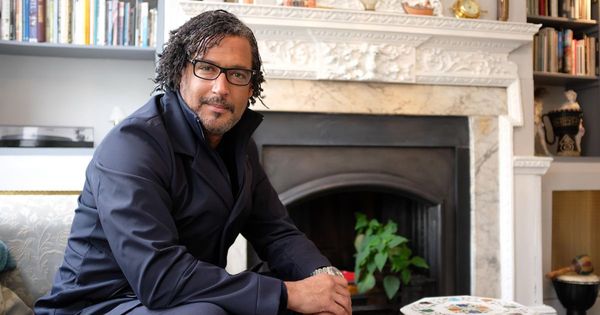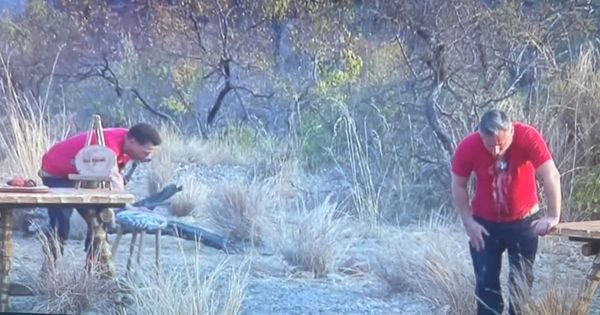
David Olusoga will receive a Bafta special award for an outstanding contribution to television next month.
The honorary prize, which will be awarded at the Bafta television awards on 14 May, is one of the organisation’s highest accolades. Previous winners include Clare Balding, Idris Elba and Cilla Black.
Speaking to the Guardian, Olusoga said receiving the award for his work as a producer and presenter was “truly humbling”. “Like lots of young people today all I dreamed about when I started in TV was just getting my foot in the industry,” he said.
With a three-decade career spanning the creative arts and academia, the historian and broadcaster has been a trailblazer for the TV industry, leading the reappraisal of how history has been traditionally told through popular culture.
His credits including presenting the long-running BBC history series A House Through Time; writing and presenting the award-winning series Black and British: a Forgotten History; the Bafta-winning Britain’s Forgotten Slave Owners; and the landmark BBC arts series Civilisations.
He said his own experiences taught him that television – particularly factual TV – could change lives and broaden horizons. Olusoga said: “It was watching Michael Wood when I was a teenager that made me want to be a historian. It was watching David Attenborough that inspired me to go backpacking in my 20s to see the natural world.
“So having been lucky enough to made programmes that have similarly impacted other people’s lives and broadened their horizons is an astonishing privilege, far beyond anything I dreamed of when I first entered the industry in the late 1990s.”
A professor of public history at the University of Manchester, Olusoga is also the author of seven books including Black and British: a Forgotten History, The World’s War, and A House Through Time. He regularly contributes to the Guardian, including for the recent series Cotton Capital, which investigates the Guardian founders’ links to slavery and the impact of the slave trade in Britain and the world.
Olusoga said British TV was a medium dominated by the well-connected and the privileged. He said: “Not only was it predominantly middle-class people who got to work in TV, that lack of diversity (in all its forms) within the industry meant that programmes very often viewed the UK and the world from the perspective of better-off, more middle-class people.
“So history programming – like TV in general – has traditionally struggled to broaden its lens and include the stories and experiences of working-class people and minorities. I’d like to think some of the work I have done on series like A House Through Time, and Black and British: a Forgotten History have played a role in broadening the sorts of histories TV now explores and celebrates.”
A special commemoration at the Bafta TV awards will pay tribute to Olusoga’s work and his ongoing legacy and impact upon the TV industry and society.
Jane Millichip, the CEO of Bafta, said Olusoga had “made an outstanding contribution, not just to the television community but to our society and culture. His commitment and bravery in reappraising how history is presented through television is inspiring.
“He represents the best of what television can do: its power to inspire, educate and challenge. David has made our industry and society a better place, and this Bafta special award couldn’t be more deserved.”
The Bafta TV awards will be hosted by the comedians Rob Beckett and Romesh Ranganathan and will be broadcast on BBC One and iPlayer on 14 May at 7pm.










